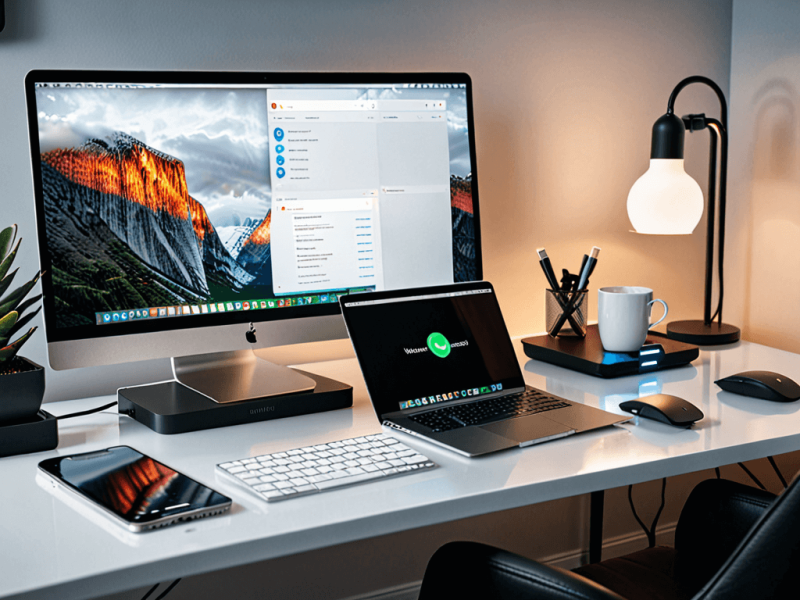Technology is a vital part of modern life, but it can also become overwhelming. The key to maintaining control over your digital world is to develop daily habits that simplify your interactions with technology. By streamlining your digital routines, you can enhance productivity, reduce stress, and improve your overall well-being.
This guide covers practical and easy-to-follow daily habits that will help you make the most of technology while keeping your digital life organized and efficient.
1. Start Your Day Without Screens
The way you begin your day sets the tone for the rest of it. Instead of immediately reaching for your phone, try to start your morning screen-free.
- Use a traditional alarm clock instead of a phone alarm.
- Take a few minutes to stretch, meditate, or enjoy your morning coffee without digital distractions.
- Write down your to-do list on paper before checking notifications.
This habit helps you avoid unnecessary distractions and gives your brain a calm start to the day.
2. Organize Your Digital Workspace
A cluttered digital workspace can be as stressful as a messy physical space. Dedicate a few minutes each morning to organizing your digital tools.
- Declutter your desktop by keeping only essential files and folders.
- Close unused tabs and applications to keep your computer running smoothly.
- Use cloud storage or an external hard drive to store old files instead of letting them pile up on your computer.
A clean and organized workspace leads to better focus and efficiency.
3. Set Screen Time Limits
Excessive screen time can reduce productivity and impact mental health. Implementing screen time limits helps you stay focused and avoid digital burnout.
- Use built-in screen time tracking tools on your phone or computer.
- Schedule breaks using the Pomodoro technique (25 minutes of work, 5-minute break).
- Designate tech-free times, such as during meals or before bedtime.
This habit ensures a healthier relationship with your devices and reduces unnecessary scrolling.
4. Automate Repetitive Tasks
Automation saves time and energy by handling repetitive tasks for you.
- Use email filters and labels to organize your inbox automatically.
- Set up calendar reminders for important events and deadlines.
- Use apps like IFTTT or Zapier to automate common digital tasks.
By eliminating manual, repetitive actions, you can focus on more meaningful work.
5. Unsubscribe and Declutter Digital Subscriptions
Over time, we accumulate countless email subscriptions and notifications that contribute to digital clutter. Regularly reviewing and unsubscribing helps keep your inbox manageable.
- Unsubscribe from unnecessary newsletters using tools like Unroll.Me.
- Turn off non-essential app notifications to minimize distractions.
- Review and cancel unused digital subscriptions and memberships.
A cleaner inbox and fewer distractions lead to a more organized digital life.
6. Secure Your Digital Life
Cybersecurity is crucial in today’s digital age. Taking small steps daily ensures your online presence remains secure.
- Use a password manager to store and generate strong passwords.
- Enable two-factor authentication for important accounts.
- Regularly update software and apps to patch security vulnerabilities.
By staying proactive with cybersecurity, you can prevent digital threats and keep your personal information safe.
7. Limit Multitasking and Focus on One Task at a Time
Multitasking can reduce efficiency and increase stress. Developing habits that promote deep work improves productivity.
- Use the “Do Not Disturb” mode when working on important tasks.
- Close unnecessary tabs and mute notifications to minimize distractions.
- Allocate specific times for checking emails and messages instead of doing it constantly.
Focusing on one task at a time improves concentration and efficiency.
8. Practice Digital Minimalism
Digital minimalism helps you eliminate digital clutter and focus on what truly matters.
- Keep only essential apps on your phone and delete those you rarely use.
- Organize files into structured folders and delete unnecessary documents.
- Limit social media usage by setting daily time limits.
Simplifying your digital space creates a clearer and more productive environment.
9. Use Productivity Tools Wisely
Productivity tools can be helpful, but they should be used strategically.
- Use task managers like Todoist or Notion to keep track of important tasks.
- Set calendar reminders for meetings and deadlines.
- Leverage note-taking apps like Evernote or OneNote to keep digital notes organized.
A well-structured system for productivity tools helps you stay on top of your responsibilities.
10. End Your Day with a Digital Detox
A technology-free evening promotes better sleep and relaxation.
- Turn off screens at least an hour before bedtime.
- Read a book, journal, or engage in an offline hobby.
- Use “night mode” on devices to reduce blue light exposure in the evening.
This habit helps you unwind, sleep better, and maintain a balanced relationship with technology.
Final Thoughts
Technology is a powerful tool, but it should work for you—not the other way around. By implementing these daily habits, you can simplify your technology use, reduce stress, and maximize productivity. The key is consistency; small changes over time lead to significant improvements.
Start adopting these habits today and enjoy a more balanced, efficient, and stress-free digital life.

